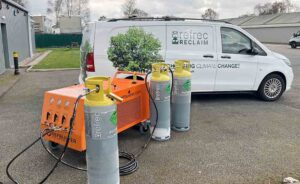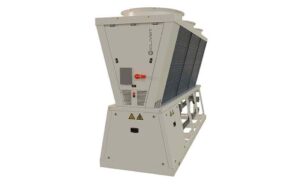Philanthropy could help reduce cold chain emissions
24th September 2020
UK: A new report discusses how philanthropic intervention could help reduce emissions from the cold chain, while enhancing food security and poverty reduction.
Net zero cold chains for food – A discussion document on the case for philanthropic action is authored by the Carbon Trust with input from a range of leading experts and stakeholders and commissioned by the Kigali Cooling Efficiency Programme (K-CEP). It outlines the challenge of reducing emissions from rapidly growing food cold chains and how philanthropy can help “bend the curve” whilst enhancing food security and poverty reduction through net zero food cold chains.
The report argues that to avoid locking-in to high carbon, energy inefficient infrastructure, action is needed to develop net zero cold chains that reduce food waste and avoid emissions from high GWP refrigerants and inefficient equipment. It maintains that this will require a system transition with action across many stakeholder groups to create low carbon infrastructure, access to reliable, clean energy, and appropriate operating procedures, as well as supportive policy, regulation, and commercial incentives.
“Net zero compatible cold chain solutions have the potential to ’bend the curve’ on GHG emissions in countries that already have significant cold chain infrastructure, but critically they will help to avoid significant increases in GHG emissions in countries where cold chain deployment is expected to grow,” said Dan Hamza-Goodacre, K-CEP’s non-executive director. “This presents an enormous opportunity for philanthropy to play a catalytic ‘systems integrator’ role in this complex sector, to reduce GHG emissions whilst delivering on critical areas including food security and poverty reduction.”
“Acting now to transition to net zero cold chains can unlock significant climate, food security and development benefits but will require a change from conventional solutions,” added Carbon Trust innovation director David Aitken. “Philanthropy can play a key role in catalysing this shift at scale and speed to net zero cold chains to ensure we protect the climate, deliver safe nutritious food to consumers and improve farmer livelihoods.”
Philanthropy is already involved in supporting cold chains. For instance, K-CEP has supported the sector by working with the World Wildlife Fund to develop solutions for the fishing sector in East Africa. Interventions at this stage have focused on single approaches to test technology deployment or awareness creation on the scale of impact of cold chains.







